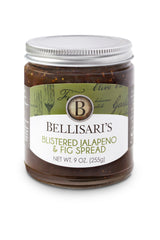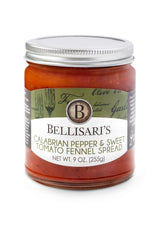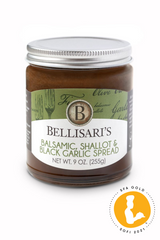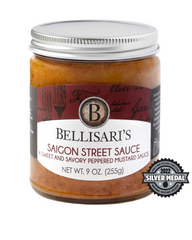
Like many of you, I abandoned the dream of finding one surefire method for making consistently perfect hard boiled eggs some time ago. After trying a few too many “foolproof” tricks with spotty results, I relegated easy-peel eggs to the same category as unicorns and cheap airfare: nice to fantasize about, but if they were truly real, you’d think we’d have heard about it by now.
But that’s the thing about myths — just when you’ve thrown your hands in the air and walked away, something new comes along to rekindle your hope.
For me, that something new was my pressure cooker and a friend’s improbable suggestion that I try using it to make a batch of eggs. Just like that, the dream was alive again.
I’ve actually been sitting on this revelation for a few months now just because I didn’t trust the evidence of my own eyes: Two eggs or a dozen, fresh eggs or weeks old, white eggs or brown eggs, it didn’t matter. The shells slipped easily off each time, leaving a smooth and pristine hard boiled egg.
There are a few theories for why this is. Some say that, similar to steaming eggs, the pressure cooker forces steam inside the egg’s shell during cooking, causing it to separate from the egg white. Either way, it works. Making hard-cooked eggs in the pressure cooker is the only method I’ve found that has worked for me every single time.
I based my eggs on the popular “5-5-5” method for hard-cooked eggs in the Instant Pot. The idea is to put your eggs into a steamer basket and seal them inside your pressure cooker along with a cup or so of water. It takes about five minutes for the cooker to come up to high pressure, five minutes to cook the eggs, and then five minutes of natural pressure release before removing the eggs from the cooker — hence the “5-5-5” method.
I found that this basic formula worked just fine, though it typically takes my pressure cooker closer to 10 minutes before fully pressurizing.
I also decided that I like the texture of 4-minute eggs better than 5-minute eggs. At four minutes, the whites are firm but soft and the yolk is cooked through but still creamy; at five minutes, I felt like the whites started to become rubbery and the yolk was a little chalky. Give it a try both ways and see which you prefer.
Also, for those of you with stovetop pressure cookers, I recommend a quicker 3-minute cook time. Stovetop pressure cookers can reach a higher pressure than electric cookers and tend to cook food more quickly. (For reference, a friend of mine tested this recipe with her stovetop pressure cooker and her verdict was that 4-minute eggs were fine, but tasted slightly overcooked.)
The only un-perfect thing about this way of hard boiling eggs is that, every so often, one of the eggs will crack its shell during cooking. When this has happened to me, it’s usually been during the 5 minute “natural release” period after the eggs are already cooked, so the crack is only superficially cosmetic.
If your eggs seem to be cracking more often, or are cracking earlier during cooking before the whites are set, try cooking them at low pressure instead of high pressure. My own tests at low pressure gave inconsistent results, but every pressure cooker is a little different and you might have better luck with yours.
Did you know? Older eggs are easier to peel than fresh eggs. If you are planning to make hard boiled eggs and want to make sure that the eggs are easy to peel, buy your eggs at least a week ahead of time (two weeks even better, they'll keep).
If you need easy-to-peel eggs and you have fresh eggs, you might want to try steaming the eggs for 15 minutes. Pour an inch of water into a pot and insert a steamer basket. Bring to a boil. Place the eggs in the steamer basket, cover and steam for 15 minutes (more or less, check!). Or if you don't have a steamer basket, steam the eggs in a half inch of water. The steam penetrates the shell a bit making the eggs easier to peel. You can also steam eggs in a pressure cooker!
If you've boiled a batch of eggs that you are now finding difficult to peel, try cracking the shells all around without peeling them and soaking the eggs in water for a while. The water often seems to seep in enough under the shell to make the egg easier to peel.
Here is the stovetop method…
1. Cover the eggs in a saucepan with water: Fill a saucepan about a quarter of the way with water. Place the eggs in a single layer at the bottom of the saucepan. Add more water so that the eggs are covered by at least an inch or two of water.
The more eggs that are crowding the pan the more water you should have over the eggs. 6 eggs should be covered by at least an inch, 7 to 12 eggs, 2 inches.
2. Heat the pot on high heat and bring the water to a full rolling boil.
Adding a teaspoon of vinegar to the water may help keep egg whites from running out if an egg does crack while cooking. Also some people find adding 1/2 teaspoon of salt to the water helps prevent cracking as well as making the eggs easier to peel.
3. Turn off the heat, keep the pan on the hot burner, cover, and let sit for 10-12 minutes.
If you have the type of stove burner that doesn't retain heat when turned off, you might want to lower the temp to low, simmer for a minute, and then turn it off.
Depending on how cooked you like your hard boiled eggs, the eggs should be done perfectly in 10-12 minutes. That said, depending on your altitude, the shape of the pan, the size of the eggs, the ratio of water to eggs, it can take a few minutes more.
Or if you like your eggs not fully hard cooked, it can take a few minutes less. When you find a time that works for you, given your preferences, the types of eggs you buy, your pots, stove, and cooking environment, stick with it.
If I'm cooking a large batch of eggs, after 10 minutes I'll sacrifice one to check for doneness, by removing it with a spoon, running it under cold water, and cutting it open. If it's not done enough for my taste, I'll cook the other eggs a minute or two longer.
I also find that it is very hard to overcook eggs using this method. I can let the eggs sit, covered, for up to 15-18 minutes without the eggs getting overcooked.
4. Strain the water from the pan and run cold water over the eggs to cool them quickly and stop them from cooking further. Or, if you are cooking a large batch of eggs, remove them with a slotted spoon to a large bowl of ice water.
I find it easiest to peel the eggs under a bit of running water.
The best way to store hard boiled eggs is in a covered container in the refrigerator. Eggs can release odors in the fridge which is why it helps to keep them covered.
They should be eaten within 5 days
Source: Simplyrecipes.com






